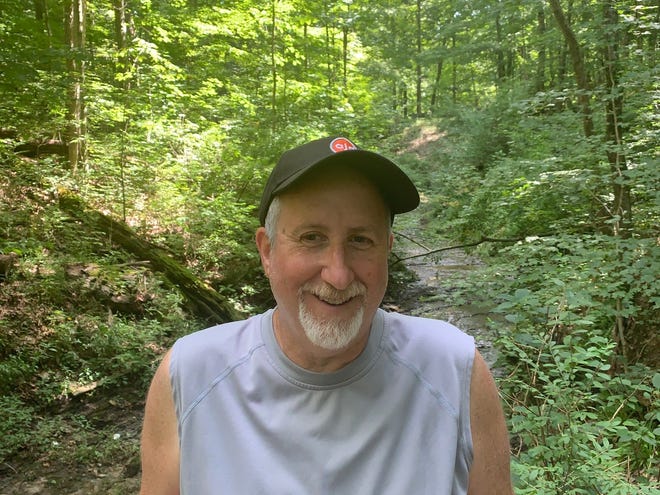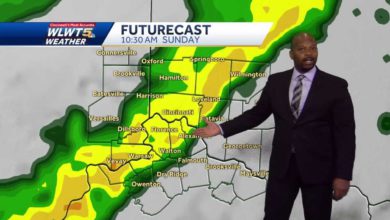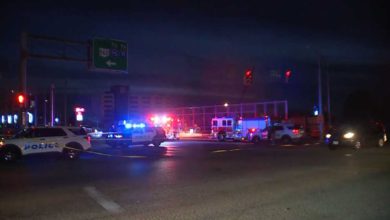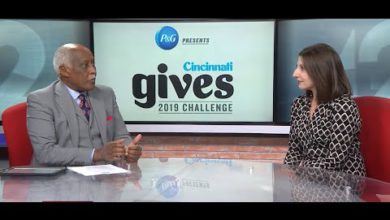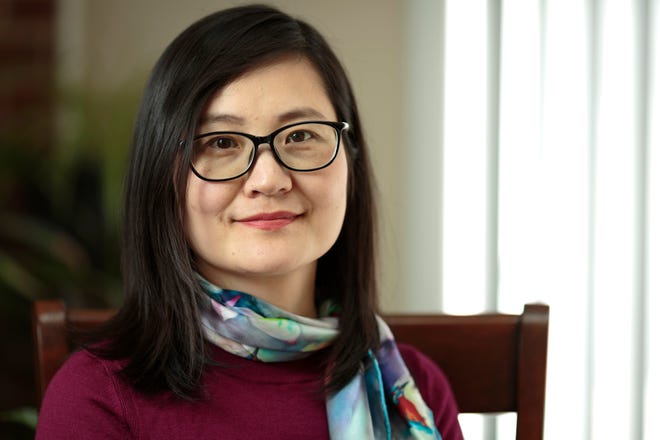
Felicity Tao received more media requests in the last few days than she has in the last year. The requests all looked the same, and they would be familiar to any minority community dealing with tragedy.
The reporters she talked to almost seemed to follow a script – a script in search of pain. And when they couldn’t find that, or her pain wasn’t painful enough, they moved on.
Tao was being asked these questions because eight people had been killed in a series of shootings in and around Atlanta on Tuesday night. Six of the victims were women of Asian descent.
It was the kind of shocking violence that grabbed the nation's attention. Finally, America could see the kind of Asian racism that is often hidden away or underreported, even as former President Donald Trump seemed to revel in calling COVID-19 the "Chinese virus."
But even with eight people dead, there was debate about whether the attack was a hate crime. About whether racism was the primary motive. About whether America was finally ready to stop Asian hate.
Tao was a journalist before immigrating to America, and she knows the truth is more complex than that. The truth is Tao was in San Francisco for her 20th wedding anniversary a few years ago when a woman kicked her luggage and told her to go back to her country.

She hasn’t experienced overt racism like that in Cincinnati. But the truth is she often feels invisible here, which takes its own heavy toll. Because there is no Chinatown here, and stories of prejudice against Asian people often go untold.
Tao is a communications director for the Greater Cincinnati Chinese School in Butler County, and she founded the Greater Cincinnati Chinese Cultural Exchange Association. She is an advocate who knows Asian people are underrepresented in Cincinnati media, including The Enquirer.
She knows this because she is the one sending press releases that often go unanswered. And after the devastating attacks in Atlanta, the intense spotlight on Asian Americans only reinforces the lack of attention they are normally paid.
“We don’t exist,” Tao said.
‘People are scared'
Across the street from a sports bar in Silverton, the sign hangs in all capital letters: WANGLAW. In the window below, there is a poster: "English is spoken here."
Standing in the lobby looking out at the window, Charleston Wang says the poster helps keep white nationalists away. He laughs, but it’s hard to tell if he’s joking.

After watching the news conferences about what happened on Tuesday, Wang looked up the definition of sex addiction. He did this because he felt confused and offended and sad as he watched a sheriff’s spokesperson in Georgia answer questions about a possible motive for the attacks.
The suspect had denied any racial motivation, police said, and blamed the violence on his sexual addiction.
“Yesterday was a really bad day for him,” the white police official said about the white suspect. “And this is what he did.”
Wang recites the deputy’s name, Capt. Jay Baker, along with other details of the shootings almost 500 miles away. He slaps his hands on the maroon leather couch in his office.
“People are scared,” he said.
Wang didn’t know these women, but he has clients like them. Wang is an immigration lawyer who has represented dozens of spa workers. He’s represented them after they’ve been sued for allegedly causing injury. He’s represented them after they’ve fled their country. He’s represented them trying to get married. And he’s represented them after police stings.
In most cases, Wang said, they’re vulnerable targets.
He throws his hands around, hitting the couch again. He’s stressed. He’s mad. He’s a lot of things.
He is 65, and his hair is colored orange. On one side of the couch is a bowl of fake fruit, grapes and strawberries. On the other side is a large American flag.
Wang was born in Taiwan and lived in Malaysia before he came to America when he was 16. When he graduated from college, and his hair reached beyond his shoulders, his diploma credited Cheng-Kung Wang. When he passed the bar exam a few years later, he added another name to the certificate, which is framed in his office.
Charleston.
He picked the name out of a hat.
This week, when Wang looked up the definition of sex addiction, he found research saying it is not an established psychiatric diagnosis. He found the American Psychiatric Association removed sex addiction from its guidebook of mental disorders in 2012.
And as he watched the discussion surrounding the Atlanta killings, he couldn’t help but think the deaths were being minimized. He couldn’t help but feel like the victims were being blamed.
It hurt him, even though Wang doesn’t feel persecuted in Cincinnati. Because the man with orange hair says he often feels invisible too.
‘Where are you really from?’
Felicity Tao came to America when she was 25.

She left China with her husband, Mingyi Weng, to attend grad school. Her university was in a cornfield somewhere in Illinois. He was in Cincinnati. She always planned to return to China, and she did. She thought her husband would join her a few years later.
But he didn’t want to leave. He loved Cincinnati. Compared to where they lived, Cincinnati was quiet.
He convinced her to come back. To leave their parents behind and start over. Because he felt this was the best place to raise their children.
There are times now, especially last year, when her husband felt like they made the wrong decision. Today, they both realize the American ideals they once believed in are more dreams than realities. The America they fantasized about, the one they saw in Hollywood movies, doesn’t exist.
This is an America where, in Cincinnati, owners of a Chinese restaurant say their homes and cars have been egged. Where the restaurant receives calls daily telling them to “go back to China.” Where staff must be walked to their cars at night.
Because the coronavirus was first reported in Wuhan, China, more than a third of Americans said they witnessed someone blame Asian people for the pandemic last year.
Tao hasn’t been directly confronted with a racist phrase describing the virus, but she’s heard of others who have – including kids at school. She does fear one question, though: Where are you from? Because when the answer is Cincinnati, it’s usually followed by another question:
Where are you really from?
To her kids, who are 19 and 14, Cincinnati is the only home they’ve ever known. Tao doesn’t talk to them about the violent attacks against Asian Americans that seem to be happening more frequently across the country than ever before. Stories about a 64-year-old grandmother robbed of cash she withdrew from an ATM to buy Lunar New Year gifts. Stories about a 52-year-old woman being shot in the head with a flare gun. Stories about an 84-year-old man smashed against the pavement during his morning walk.
Tao doesn’t talk about how the number of hate crimes reported in America’s biggest cities went down last year, according to a study at California State University, but the number of hate crimes reported against Asians rose 149%.
She doesn’t talk about a national intelligence report that concludes there will be a heightened threat of “domestic violent extremism” this year.
She doesn’t talk about how a group tracking discrimination said it received more than 3,000 firsthand accounts of anti-Asian harassment since the pandemic began – compared to roughly 100 incidents in each previous year.
Tao knows this comes from her own insecurity, because she wants her children to believe they can do anything. Because that’s how she was raised. She doesn’t want them to feel like victims.
Even if, sometimes, they are.
In Cincinnati, data collected by the police department shows there were fewer crimes against Asian people last year than in at least a decade. But the truth is more complicated than that. And experts say those numbers can be wildly underreported.
These days, Tao's own parents worry about her safety. And friends across the world ask why her family moved to America. Tao tries to brush off those fears, especially to her parents. She doesn’t want to scare them. But the fear is there, inside her head.
And it comes out in tears when she talks about her sons. Because she worries about their safety, too.
When Tao thinks about the future of our country, this can-do person who prides herself on positivity finds herself wondering something she has never wondered before. Is America really a place of liberty and justice for all?
“I have doubt,” she said.
Source link


